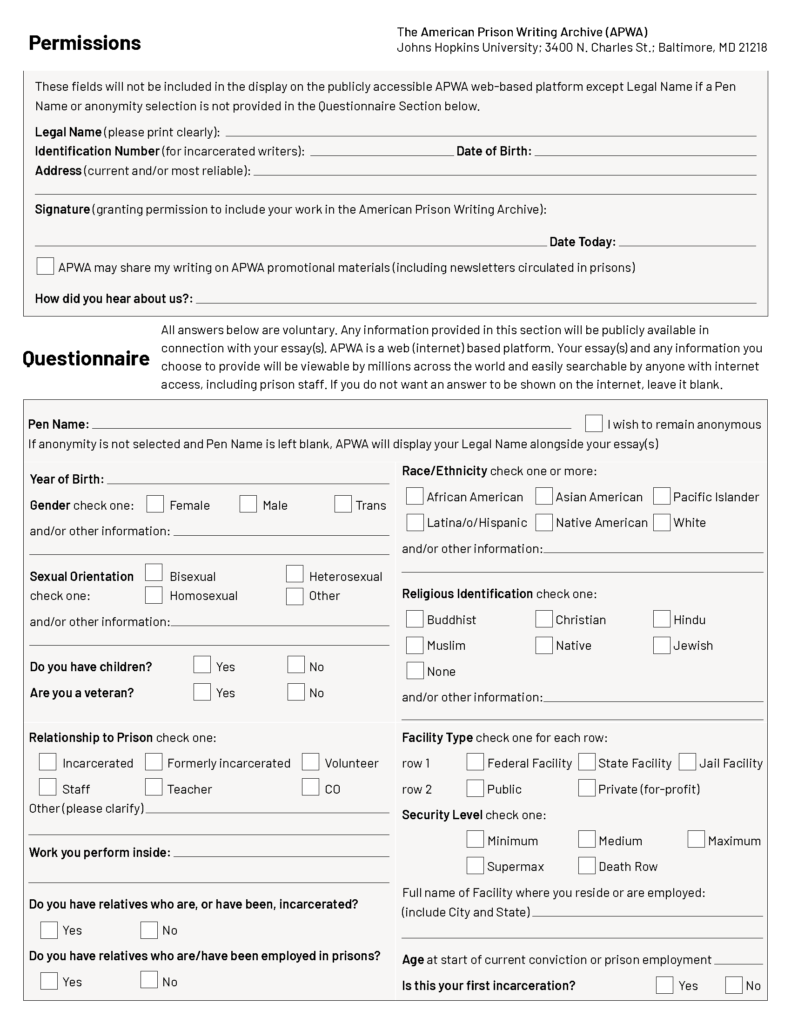How to Submit
The American Prison Writing Archive is not yet set up for digital submissions, we encourage prospective authors to write to the following address:
American Prison Writing Archive
Johns Hopkins University
3400 N. Charles St.
Baltimore, MD 21218
Anyone with first-hand experience inside US carceral institutions today is eligible to submit essays. This includes prison employees and volunteers, who materially shape the day-to-day conditions in which incarcerated people live, and who are in turn deeply affected by their work.
Guidelines for submissions:
Please include a permissions-questionnaire (PQ). We must have a signed PQ in order to post work in the APWA. Writers can submit multiple essays at a time, and only one PQ is required.

Help us get the word out to new writers to contribute their first-hand experiences with APWA. Share our Call for Essays with family, friends, and incarceration focused support and advocacy groups and educational programming.


